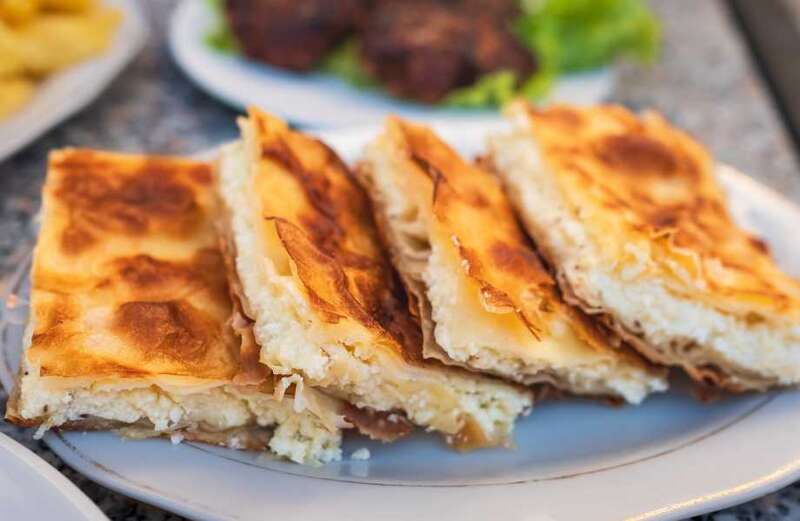ALBANIAN cuisine is full of hearty dishes and colourful options to please even the fussiest of eaters.
Here's our guide to the unique mix of textures and flavours to be found in the country's traditional recipes.

What is traditional Albanian food?
Traditional Albanian food consists of dishes including grosh, tave kosi, lakror and byrek.
These rich and flavoursome meals combine various types of meat, fish, vegetables and spices.
With a host of meat-free alternatives available, there’s truly something for everyone in Albanian cooking.
 From tongue scraping to saying no, here are 12 health trends to try in 2023
From tongue scraping to saying no, here are 12 health trends to try in 2023
What is the national dish of Albania?
Tave kosi

Albania’s national dish is tave kosi, which consists of baked lamb, eggs, rice and yoghurt.
These ingredients are cooked in a casserole dish and it has a texture similar to a quiche.
The lamb is usually pre-cooked along with the rice while the rest of the ingredients are prepared.
This is to ensure the meat is as tender as possible because — the rice only soaks up a certain amount of the lamb broth.
Then the lamb and rice are added and it is baked until golden brown.
Tave kosi dates back as far back as the 15th century and was shared among peasants.
Mehmed II of the Ottoman Empire liked tave kosi so much that it grew in popularity throughout the empire.
In more modern times there have been variations made with chicken instead of lamb.
Given Albania’s location between Turkey and Greece, it has been influenced by the cuisine of its neighbours.
Tave kosi remains popular to this day because of its flavour and is sometimes made for special guests.
 I'm a nutritionist - here's the 10 best diet trends to help lose weight in 2023
I'm a nutritionist - here's the 10 best diet trends to help lose weight in 2023
Byrek

Byrek is a delicious savoury layered flaky pastry.
The delicacy is stuffed with potatoes, cheese, meat and vegetables.
It is usually served out of street carts and is very popular in the country.
Speca me gjize

This dish has peppers as its staple.
Green, red and yellow peppers are halved before being filled with a handful of spices, cottage cheese and rice.
They are then put into an oven and baked.
Pastice

This delicacy is of Italian descent — it is called frittata in its homeland, where it is often made from leftovers.
Its presence in the country can be traced back to Italy’s occupation of Albania during World War II.
To make the dish macaroni noodles, butter, eggs, and milk are baked.
Qofte

Ground meat, breadcrumbs, chopped onions and a bit of garlic are rolled into balls and patted down before being pan fried.
Parsley leaves or mint can also be added.
Qofte can be served as both a starter and main course.
Ballokume

Ballokume is a traditional biscuit made from cornflour.
It is often eaten during Dita e Verës — the ‘Summer Day’ celebration.
This little-known pagan festival is celebrated on March 14 of the Gregorian calendar.



































